Max - Dune: Prophecy: A complex and ambitious journey into the origins of the Bene Gesserit
By Mulder, 15 november 2024
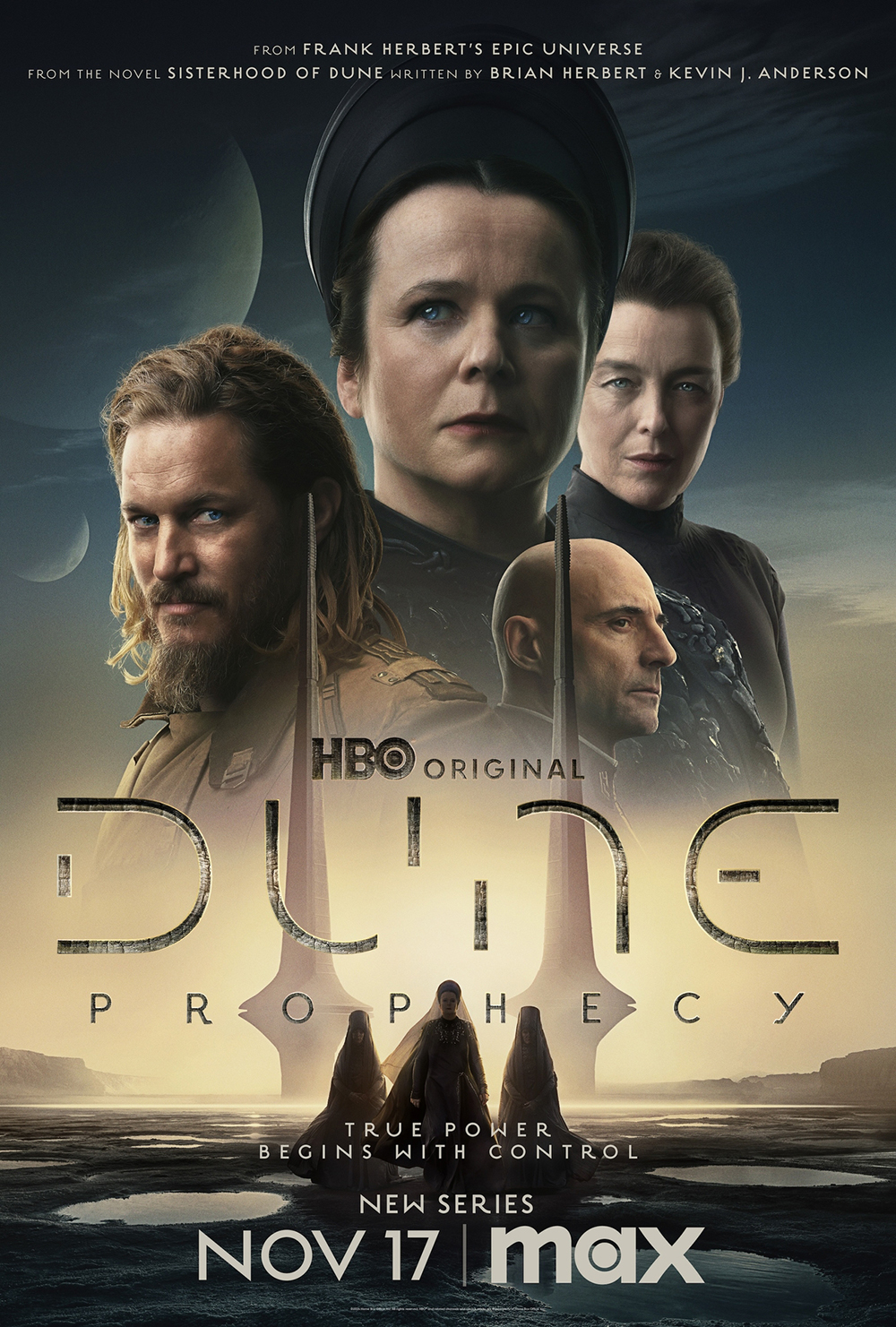
The long-awaited HBO series Dune: Prophecy, developed by Diane Ademu-John and Alison Schapker, delves deep into Frank Herbert's Dune universe, presenting the complex origins story of the enigmatic Bene Gesserit brotherhood. Set 10,000 years before the rise of Paul Atreides, the series seeks to unravel the formative days of the powerful sect, exploring themes of ambition, manipulation and the corrupting nature of power. With Emily Watson as Valya Harkonnen and Olivia Williams as her sister Tula Harkonnen, Dune: Prophecy offers a compelling, if uneven, tale that struggles to strike a balance between its broad scope and the intimacy of its character studies.
Dune: Prophecy is a story of ambition and control. Valya Harkonnen (Emily Watson) is a commanding presence, embodying a relentless drive to restore her family's tarnished legacy while shaping the future of the Brotherhood. Emily Watson's nuanced performance anchors the series, oscillating between a ruthless manipulator and a leader haunted by the weight of her decisions. Olivia Williams complements her as Tula Harkonnen, a more reserved but equally compelling figure whose loyalty to her sister and the Brotherhood conceals a fierce determination. Together, they navigate the treacherous political and personal landscapes of the Imperium, laying the foundations for the Bene Gesserit's future dominance.
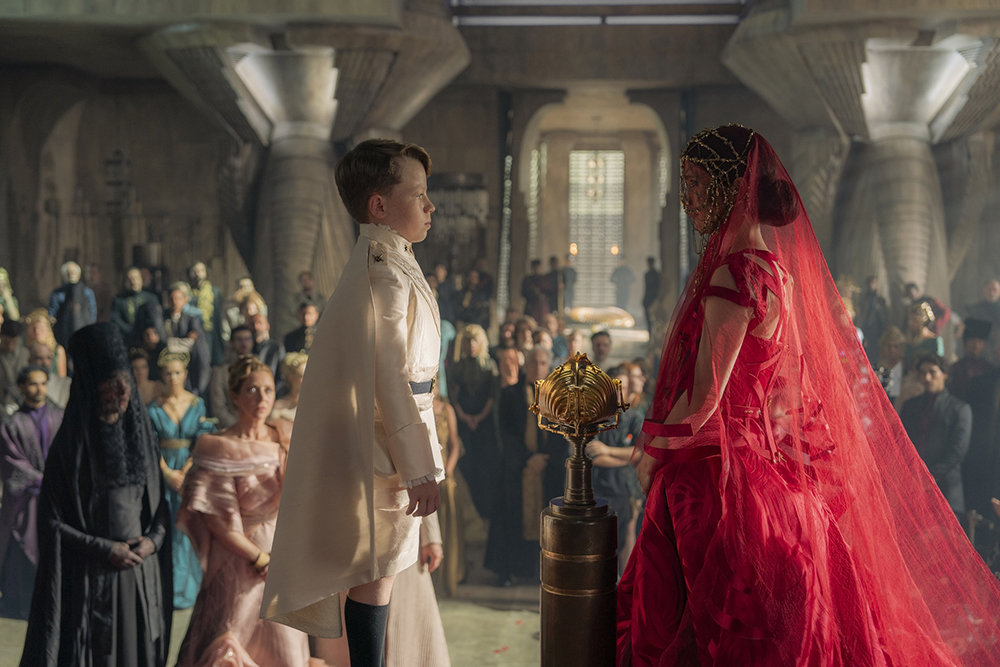
The series' dual timeline - which traces the rise of the Harkonnen sisters in their youth, played by Jessica Barden and Emma Canning, and their subsequent consolidation of power - provides a multi-layered narrative structure. The flashbacks, particularly in the third episode, are among the most captivating moments, offering a glimpse into the events that shaped the sisters. The performances of Jessic Barden and Emma Canning are sincere and raw, contrasting with the determination of their elders. This juxtaposition underscores the themes of loss, ambition and the sacrifices necessary for survival and power.
However, Dune: Prophecy stumbles when it steps outside the confines of the Brotherhood's story. The political machinations of Emperor Javicco Corrino, played with measured menace by Mark Strong, and the sprawling subplots involving his daughter, Princess Ynez (Sarah-Sofie Boussnina), often seem disconnected from the central narrative. While these plots aim to flesh out the Imperium and its power struggles, they lack the emotional weight and cohesion of the Brotherhood arc. The arrival of Desmond Hart, played with disturbing intensity by Travis Fimmel, adds an intriguing but underdeveloped layer of conflict. His mysterious powers, acquired during a harrowing encounter with a sand worm on Arrakis, make him both a potential ally and an imminent threat to the Brotherhood.
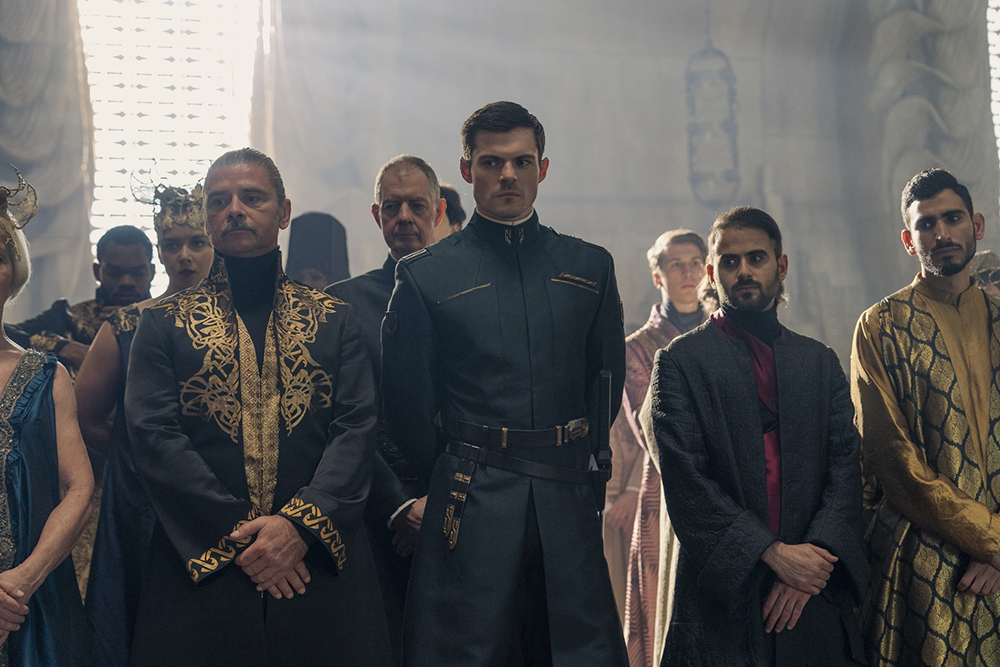
Visually, the series is a mixed bag. Pierre Gill's cinematography captures the grandeur of the Dune universe, with its imposing monolithic structures and desolate landscapes, but it often seems limited compared to the vast panoramas of Denis Villeneuve's films. The sets and costumes are meticulously designed, evoking the austere aesthetic of the Dune universe. However, the lack of innovation in the construction of certain worlds - especially given the 10,000-year gap between the series and the films - can give the impression that the universe is stagnating rather than evolving.
Thematically, Dune: Prophecy explores the moral ambiguities of the Bene Gesserit's methods, highlighting the fine line between guidance and manipulation. The Brotherhood's genetic breeding program, the use of The Voice and their clandestine influence on the Imperium are explored with a critical eye, questioning the ethics of their quest for power. However, the series sometimes falters under the weight of its own ambition, with its dense mythology and sprawling cast of characters sometimes blurring the narrative thread.
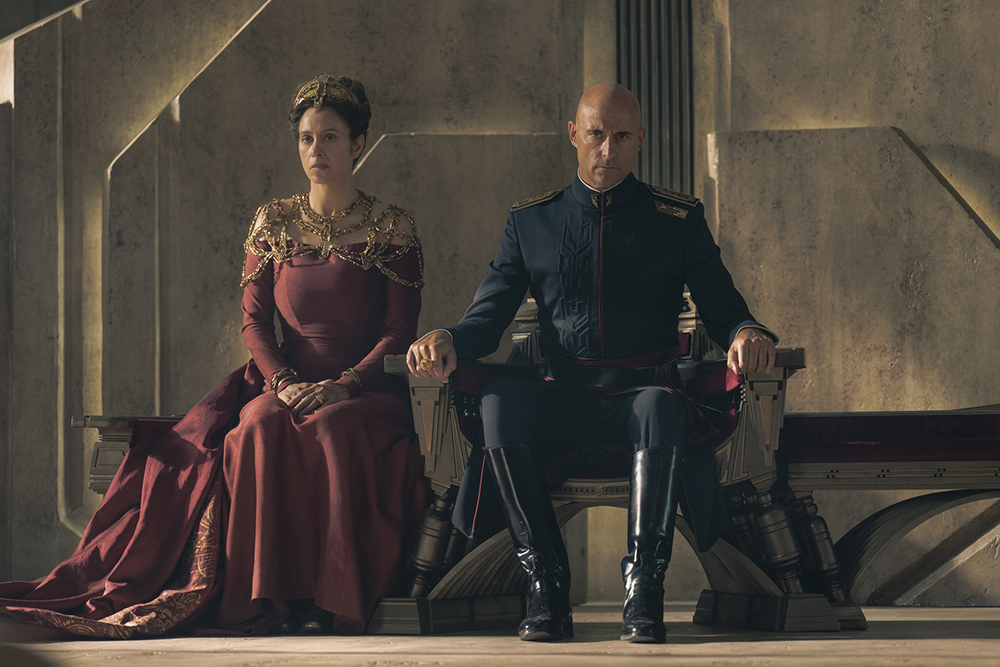
One of the strengths of the series lies in the exploration of the relationship between Valya and Tula. Their dynamic, marked by love, rivalry and shared trauma, forms the emotional heart of the series. Emily Watson and Olivia Williams share a palpable chemistry, their performances imbued with subtlety and depth. This relationship, combined with the Brotherhood's internal conflicts and external threats, keeps the story rooted in cosmic issues.
Despite its shortcomings, Dune: Prophecy is an ambitious expansion of the Dune universe. This new series offers a rich universe of intrigue and drama, underpinned by excellent performances and a commitment to exploring the darker, more complex aspects of the Bene Gesserit's origins. While not reaching the cinematic heights of Denis Villeneuve's films, the series occupies its own place in the Dune mythology, promising a deeper understanding of the forces that shape this universe. For fans of the franchise and newcomers alike, Dune: Prophecy is a fascinating, if imperfect, journey into the sands of time.
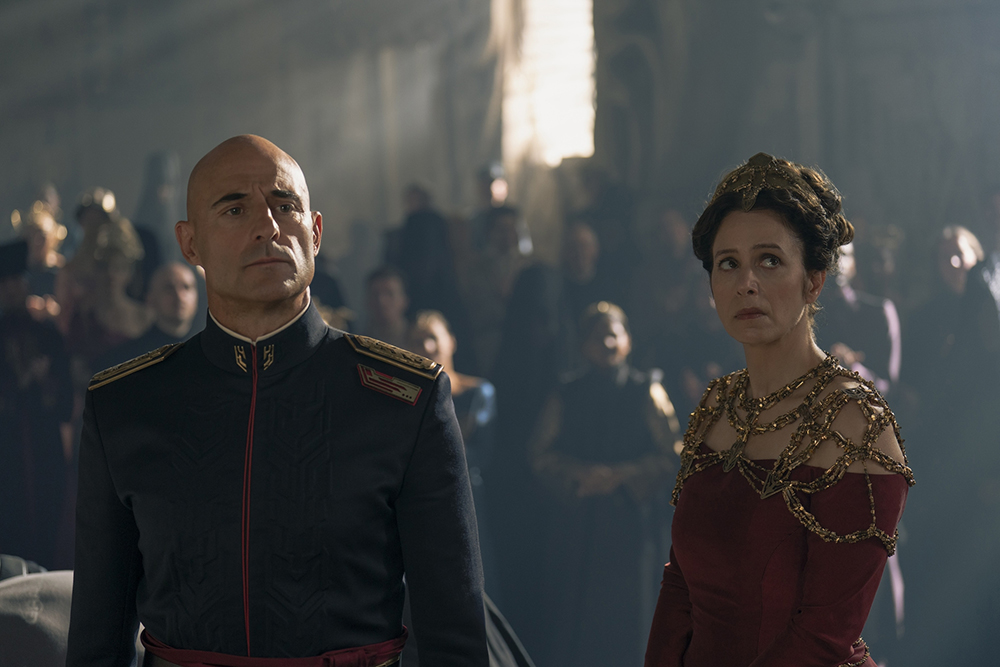
Synopsis:
In a future where mankind has traveled across the galaxy of a thousand planets, a mysterious sorority called Bene Gesserit navigates the political battles and imbroglios of the Imperium, pursuing a very specific goal of its own that will take its members as far as the enigmatic planet of Dune...
.Dune: Prophecy
Based on Great Schools of Dune by Brian Herbert, Kevin J. Anderson and Dune by Frank Herbert
Developed by Diane Ademu-John, Alison Schapker
Showrunner : Alison Schapker
Starring: Emily Watson, Olivia Williams, Jodhi May, Sarah-Sofie Boussnina, Shalom Brune-Franklin, Aoife Hinds, Travis Fimmel, Mark Strong, Jade Anouka, Chris Mason, Tabu
Music by Volker Bertelmann
Executive producers: Diane Ademu-John, Alison Schapker, Jon Spaihts, Scott Z. Burns, Matthew King, John Cameron, Cait Collins, Brian Herbert, Byron Merritt, Kim Herbert, Dana Calvo
Producer : Kevin J. Anderson
Cinematography : Pierre Gill
Production companies : Cunning Hand, Annabelita Films, Legendary Television, Warner Bros. Television
Network : HBO / Max
Photos : copyright HBO

